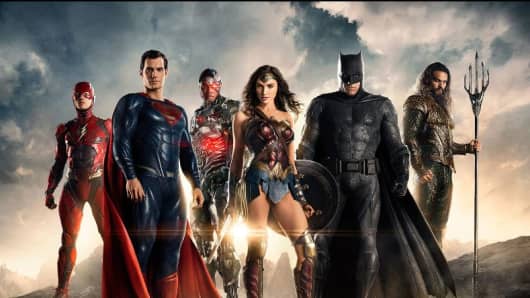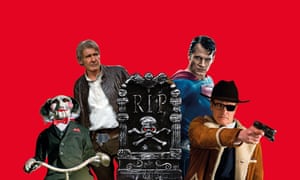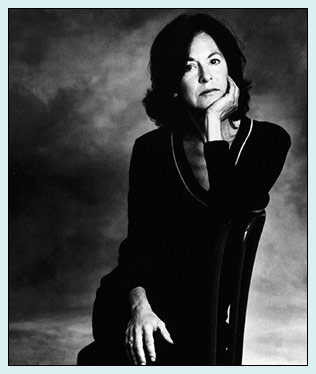Well, yes, this is too predictable, perhaps, but I saw Justice League, directed by Zack Snyder, and yes, predictably (perhaps) I enjoyed the film quite a bit. I will skip the usual apologies fans of the film have made in the face of (predictably) negative reviews to the work, the "it's not a perfect film, it has some problems, but it's lighter, has great character interaction and there is good humor in it to..." I read that so many times this last week in comment sections following printed and on line reviews that it's become something like the lines of dialog in a favorite movie you see over and over and over again and yet again after all those times, where your lips move in sync with the characters on the screen as they mouth them. I say that because that while I agree with the sentiment, my principle reason for enjoying the film is because I think Zack Snyder makes enjoyable comic book movies; he understands comic book aesthetics more profoundly than any other director currently working , definitely more profoundly than critics and a good many comic movie enthusiasts give him credit for.
Without going into his body of work for a lengthy, film class lecture kind of thing where you might think that I expect you to take notes , I'll assert plainly that Snyder succeeds, to my satisfaction, because his movies resemble the florid, visually stunning, sense jarring, thematically complex and often incomprehensibly plotted graphic novels that have emerged as a seriously considered format in the industry. Man of Steel, Sucker Punch, Batman v Superman , derided by reviewers and crabby fan boys for being too long, too slow , too dark in tone , theme and actual color scheme and and unrepentantly grim in pessimistic in outlook, are elements that have impressed me with what's going on with the level of storytelling across all the comic book publishers of note, but DC especially.
He has, of course, taken liberties with canon and adjusted his borrowings to fit the more narratively constricted needs of movie making--absolutely no one can afford to adapt a comic book story line in its entirety-- but he has done so with flair and daring and has, I believe, constructed a credible, compelling, dark and grim DC universe, reflecting that company's house style, and brings us, at last, to Justice League, a lighter, yes, a faster paced, yes, a funnier, yes, movie than than the filtered strains of Schopenhauer and Nietzsche pessimism that characterized the previous films he directed. The films are an evolution of circumstances, from being hopelessness and dispirited and becoming to actual hopeful and revitalized spirit .
In short, spoiler free if you haven't seen the previous Snyder DC adaptations, these are superheros who have something to fight for, to defend and protect the world with a conviction that, I think, is effortlessly conveyed here. Justice League moves quickly , with swiftly conveyed introductions of Flash, Aquaman, and Cyborg as the team is brought together for the first time, the action sequences have a balletic beauty only Snyder accomplishes, and the interaction among the heroes , especially in how they learn to work as a team and in the dialogue, yes, full of jokes, is attractively presented, without a sour note being heard. Justice League, I am offering in this belated note, is a good time at the movies, a super comic book movie who has, to my thinking,brought that adolescent experience of 'theater of the mind" while reading new or old comics under the bed sheets, with a flashlight, to the screen. He , like many of us, remembers that experience and does wonderful work here and else where to bring to movie theatres where you all should be , right now, watching Justice League and having a raging good escape from what is inane and ugly in this reality.
Ironically, it's been a common complaint with Synder's super hero films, Man of Steel and Batman v Superman especially, is that they are too long and leaden in pace, and yet the relatively two hour running time of Justice League has drawn the reverse complaint, too short and too rushed, just as fervently. Obviously the nearly three hour lengths of the first two films bothered me not at all since I'm inclined to appreciate Snyder's dually Wagnerian, eye popping aesthetic, but I do think that the shorter two hours for Justice League works much to its advantage. That is to say,this film had a briskness that prevented it, for me anyway, from seeming weighed down at all. Plot inconsistencies , not enough background on the new characters, an underexplored method toward Superman's revivification --all common complaints of the new picture and, perhaps, they have merit worthy of longer discussion.
But since this is a comic book movie geared, I'm sure, to emulate the tone and thematic depth of the DC print versions of these characters--Snyder and company are adapting a Superman and Batman et al, not Tolstoy , not Faulkner--I picked up on the dynamics of the action, which are, of course, very comic booky and an element that made this a pleasurable experience. And since this an origin story involving the creation of a long standing fictional institution and the introduction of three additional heros DC and WB want to make into stand alone franchises, we have to consider exactly how much time to dedicate to the narrative side streets and background information for the birth of the JL and who and what the new characters are about. My guess is that had what hard core fans of the individual characters considered to be a deservingly full introduction been included, the movies run time likely would have pushed past three hours. The movie would have been a slog and weighty , too much so even for my Snyder-tolerant mind set. Movies, especially super hero movies, should move, if nothing else.














